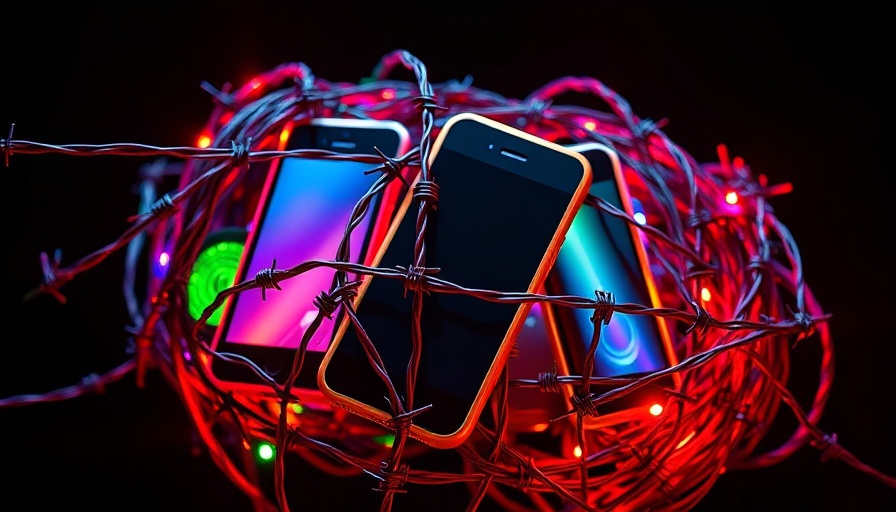
End-to-End Encryption: A Game Changer for Messaging
In what could be one of the most significant updates for mobile communication security, Android and iPhone users are set to benefit from end-to-end encryption (E2EE) for texts exchanged via the Rich Communication Services (RCS) protocol. This key enhancement promises to elevate privacy and security levels, addressing long-standing concerns over surveillance and interception of mobile messages.
The Shift Towards Cross-Platform Security
The GSM Association has recently announced a major upgrade to the RCS specifications, allowing for E2EE functionality for messages exchanged between Android and iOS devices. Up until now, many iPhone users, often frustrated by the infamous 'green bubbles' from Android messages, faced dilemmas around both the usability and security of their communications. Apple, having historically kept its iMessage platform exclusive to its devices, is now integrating RCS encryption into its iOS offerings. This marks a shift towards a more interoperable communication experience among users of different platforms.
RCS: Bridging the Communication Divide
The RCS protocol's journey has been long-fraught with challenge and competition from established apps like WhatsApp and Signal, which already offered E2EE. However, with increased standardization of features and now security through the latest RCS specification, users of both platforms can expect richer functionality including group messaging, read receipts, and overall enhanced privacy. This decision by both tech giants signals an industry shift towards prioritizing user privacy across the board.
Challenges Ahead for Implementation
As the new RCS E2EE capabilities roll out, both Apple and Google will face the task of navigating the complexities of ensuring that encryption remains robust and user-friendly amidst varied device compatibilities. With the GSMA’s universal profile providing standardized specifications, a uniform approach is anticipated as developers work to implement these improvements efficiently.
Security Benefits: What to Expect
For tech-savvy executives and decision-makers, the added E2EE for RCS messaging means more than just enhanced chat functionality; it represents a critical barrier against potential data breaches and hacking attempts. The Messaging Layer Security (MLS) protocol backing E2EE offers a framework wherein only the intended recipient and sender can decipher the messages sent.
As companies increasingly embrace remote work and digital communication, understanding the implications of this shift towards encrypted messaging can be crucial. Enterprises must begin to evaluate their own messaging solutions and ensure they employ technology that aligns with growing privacy standards.
Looking Forward: What This Means for Digital Communication
The integration of E2EE into messaging due to RCS is expected to influence consumer behavior. Experts predict that enhanced security will raise user confidence in digital communication, potentially revitalizing interest in standard SMS alternatives. With potential repercussions for marketing and customer service, businesses will need to adapt their strategies to acknowledge this evolving landscape.
As we await the official rollout of these features, stakeholders across industries should be proactive by reviewing their own communication strategies and investing in secure channels to protect sensitive information.
 Add Row
Add Row  Add
Add 




Write A Comment